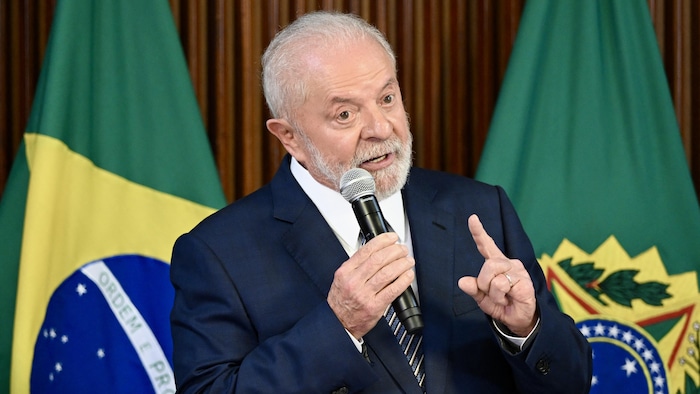Open in full screen mode The Brazilian president Luiz Inacio Lula da Silva vetoed several provisions of a controversial pesticide law. Agence France-Presse Brazilian President Luiz Inacio Lula da Silva on Thursday vetoed key points of a controversial law that relaxes rules on pesticides in the country, an agricultural giant and the world's largest consumer of agrotoxic phytosanitary products. After consulting the ministries concerned, the president decided to veto certain provisions, in order to ensure good integration between production needs, health and environmental balance.
Lula thus vetoed 14 sections of a dozen of articles of the law which intended to facilitate the certification of new pesticides and granted greater decision-making powers to the Ministry of Agriculture.
But, according to Greenpeace, the vetoed sections are not enough to ensure that people avoid some of the most harmful aspects of the law.
The environmental NGO criticized in a press release a bill that will put more toxic agrochemicals in the food of Brazilians and will further pollute the environment ;environment.
Loading
Science in 2023
ELSE ON INFO: Science in 2023
Agronegotics, one of the main drivers of Brazilian economy, follows a productivist model, a pillar of which is the intensive use of pesticides. The country consumed 719,507 tonnes in 2021, or 20% of the total marketed worldwide, according to the Food and Agriculture Organization of the United Nations (FAO).
After more than twenty years of controversy, the text was adopted by the Senate on November 28, with only one vote against.
On the agenda of the Chamber of Deputies since 1999, it was put back on the agenda in 2022 by deputies defending the interests of agrobusiness – the most influential pressure group in Parliament – with the support of the far-right president at the time, Jair Bolsonaro, a fervent defender of the sector.
Nicknamed the law of poison by his detractors, the text was the subject of intense negotiations between senators and the government of left-wing President Luiz Inacio Lula da Silva.
Agribusiness, one of the main drivers of the Brazilian economy, follows a productivist model of which a pillar is the use intensive use of pesticides. (File photo)
If the government managed to maintain the term agrotoxic, which the deputies had replaced by the words pesticide and phytosanitary product, considered more neutral, it did not prevent a major change: certain pesticides, in particular products with a carcinogenic or proven mutagenic or causing environmental damage, will no longer be automatically banned.
From now on, the ban will concern products presenting an unacceptable risk to humans or the environment, a criterion considered too vague by opponents of the text.
A risk analysis will be applied, but we do not know how it will take place or who will be in charge of it, Suely Araujo told AFP, former president of the Brazilian Environmental Protection Agency (IBAMA).
In addition, with the new law, pesticides exclusively intended for export can be produced in the country without the need for authorization.
The question of pesticides also has a dimension international. Their massive use by Brazilian producers is one of the arguments brandished by those in Europe who oppose a free trade agreement between the European Union and the South American bloc Mercosur, of which Brazil is the heavyweight.

